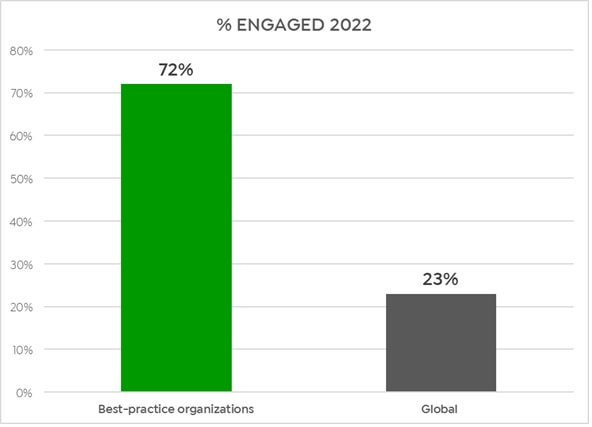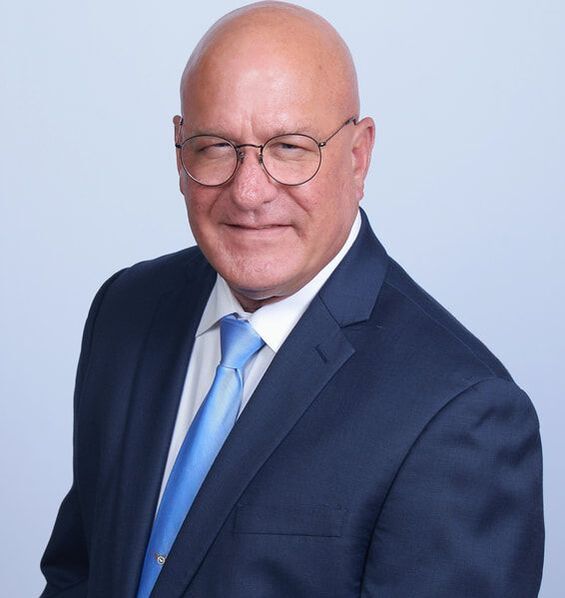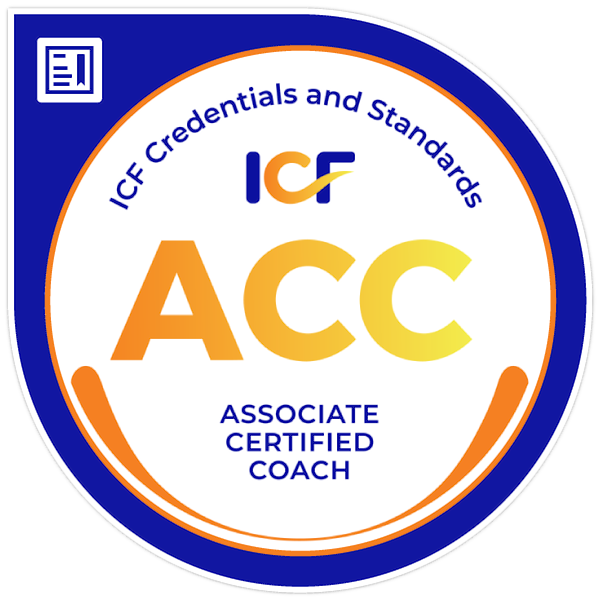The best way to predict the future is to create it. PETER DRUCKER Embrace your unique philosophy. As a leader, your impact goes beyond just accomplishing tasks, achieving goals and outcomes, or managing people. You have the power to shape culture, inspire others, and create a lasting legacy. Developing a leadership philosophy is your key to unlocking this potential. A leadership philosophy is not just a mere statement or a checkbox to mark. It's an opportunity to delve deep within yourself, to explore your values, beliefs, and aspirations. It allows you to define your purpose as a leader and articulate the principles that will guide your every action. By developing a leadership philosophy, you gain clarity and intentionality. You clarify your vision, align your values, and establish a framework for decision-making. Your philosophy becomes a compass, guiding you through challenges and uncertainties, and ensuring consistency in your leadership approach. A well-crafted leadership philosophy also fosters trust and credibility. It communicates to your team and peers that you are intentional and transparent in your leadership. It sets clear expectations and inspires others to join you in your pursuit of a shared vision. It becomes the foundation for building a cohesive and high-performing team. Furthermore, a leadership philosophy is not a static document or process. It evolves and grows with you. It adapts to new experiences, lessons learned, and personal growth. It is a tool for reflection and self-improvement, allowing you to continuously refine and enhance your leadership effectiveness. So, dear leader, seize this opportunity! Embrace the journey of developing your own, personal leadership philosophy. Unleash your unique perspective and unleash the potential within you and your team. Become the architect of your leadership legacy, and leave an indelible mark on those you lead. To learn how to develop yours, click here: Leading with Meaning & Purpose What is a leadership philosophy? A leadership philosophy is a set of guiding principles and beliefs that define how a leader approaches their role and interacts with others. It reflects their values, vision, and ideals, shaping their decisions and actions as they lead a team or organization. It outlines their fundamental understanding of leadership and serves as a compass for their behavior and leadership style. A leadership philosophy encompasses various aspects, such as the leader's communication style, approach to problem-solving, decision-making processes, and ways of motivating and inspiring others. It may also include their views on trust, collaboration, accountability, and the development of their team members. The purpose of a leadership philosophy is to provide clarity and consistency in a leader's actions and to serve as a foundation for building a positive and effective leadership culture. It helps leaders stay focused on their purpose, maintain their integrity, and create an environment where individuals can thrive and achieve collective goals. Ultimately, a leadership philosophy influences how a leader leads and impacts the overall success and growth of the team or organization they lead. To learn how to develop yours, click here: Leading with Meaning & Purpose Have an amazing journey today! Alan Mikolaj is a coach and leadership development consultant with 15+ years of experience. He is passionate about helping leaders transform their leadership, their teams, and their organizations. Impactful, professional approach driven by a passion for meaning and purpose, a growth mindset, and a commitment to excellence and service in order to drive change and results.
Alan maintains the ethics and standards of behavior established by the International Coaching Federation (ICF), including the standards regarding confidentiality. You can learn more about them on the ICF website. Transformational change starts with a conversation! Schedule your free, one-hour session by clicking here: Discovery Conversation with Alan Or call or email me: Contact Page
0 Comments
Leadership and management directly influence workplace engagement, and there is much that organizations can do to help their employees thrive at work. Gallup's State of the Global Workplace: 2023 Report One of the first principles or steps of change management and process improvement is root-cause analysis and clarifying the problem or current state. That principle also directly applies to us as a leader and our role in employee engagement—and for a leader, that means greater self-awareness and clarity about how we show up and how others see us—our leadership presence. Leaders are the ones who set the tone and culture. Leaders impact organizational effectiveness through their followers. Leaders have a great impact on engaging employees. Gallup reports that (emphasis added), "Seventy percent of team engagement is attributable to the manager." In others words, as leaders, whatever our engagement scores are, we have to own up. Gallup recently released its annual global engagement report capturing 2022 engagement data from around the world. While a slight uptick year over year, only 23% of employees globally are engaged and in the United States and Canada, engagement actually went down two percentage points (it remains above the global average at 31% engaged). Compare that to best-practice organizations who were awarded the Gallup Exceptional Place to Work Award this past year: This is a stark contrast. This means that, globally, 77% of employees are less than engaged. The report broke those down into Quiet Quitting (not engaged) at 59% and Loud Quitting (actively engaged) at 18%. Others have already begun to report and blog about the report, such as CNN. And, while they may highlight many important trends that Gallup identified and pointed out, they may or may not apply to you and your team. You need to know what you can do for your team and how your leadership behaviors could be adjusted to positively impact them and what you're trying to achieve. It all starts with self-awareness & clarity. Self-awareness is an age-old starting point for anyone serious about any type of growth and development—and that certainly includes leadership development, amplifying your leadership effectiveness, and honing your leadership presence. If I own 70% of the contribution to my engagement scores, what behaviors do I need to adjust in order to boost my team's perception of that? How can I even learn what that is? Take the LPI360 Analyzing your own engagement scores is not enough. It will not completely drive down into the types of leadership behaviors that not only impact engagement, but almost everything you do as a leader and everything that you're shooting for. It may or may not get at root cause. I've pointed out the connections research has found between seeking leadership feedback and leadership effectiveness many times. I did that most recently in a blog titled, How Do You Know if Your Leadership is Effective (or Not)? The LPI360 or Leadership Practices Inventory provides you that powerful type of feedback. It includes a self-assessment plus powerful, feedback from a variety of observers, most importantly, your one-up manager and your direct reports. You and your observers rate how frequently you engage in each of 30 behaviors that drive exemplary leadership. A customized, detailed, and confidential assessment report is then generated. Hundreds of scientific studies have consistently confirmed the reliability and validity of the LPI. To date, it has been trusted by over five million leaders worldwide and it has become the gold standard for leadership development. It is the best way a leader can gain greater self-awareness about what they do and don't do enough of. When you couple your engagement report with your LPI360 report, you zero-in on opportunities for improvement you just couldn't see before. You also gain clarity about what you are doing well so you can leverage that even more effectively. It allows you to take a deeper dive into root cause about your engagement scores. It's not going to tell you whether you are a "blue" or a "green" or whether you're a "D" or an "I", "S", or "C." It's going to point to actionable behaviors that others perceive you are either doing frequently enough to drive exemplary leadership, or not. Only armed with that type of clarity can you create an action plan for yourself that will truly impact engagement and a whole host of other outcomes. I have administered hundreds of LPI 360s and consulted and coached dozens of leaders on this powerful leadership tool. And, I am a skilled and experienced facilitator of the accompanying workshop that supports the LPI360: The Leadership Challenge. There is a best-selling book in its 7th edition by the same name by Jim Kouzes and Barry Posner. I am on a mission to partner with like-minded leaders who want to make a positive difference in the world. I would love to partner with you, too! To learn more and get started, just click this icon: Taking the LPI360 and getting expert consultation about your report is an investment in yourself. That also makes it an investment in your team, your constituents, your customers, and your efforts to make a positive difference in the world. I want to wish all of the fathers a happy and amazing Father's Day! Have an amazing journey today! Alan Mikolaj is a coach and leadership development consultant with 15+ years of experience. He is passionate about helping leaders transform their leadership, their teams, and their organizations. Impactful, professional approach driven by a passion for meaning and purpose, a growth mindset, and a commitment to excellence and service in order to drive change and results.
Alan maintains the ethics and standards of behavior established by the International Coaching Federation (ICF), including the standards regarding confidentiality. You can learn more about them on the ICF website. Transformational change starts with a conversation! Schedule your free, one-hour session by clicking here: Discovery Conversation with Alan Or call or email me: Contact Page It’s amazing how many successful entrepreneurs prioritize their health and wellness. The same discipline required for you to get your workout in daily, is the same muscle that drives revenue generating actions. Consistency. TREVOR MALONEY Men's Health Week will be celebrated around the world June 12-18, ending on Father's Day. It's an important opportunity to highlight the importance of men's health, and to promote and support the health and wellbeing of men in our families, communities, and organizations. Men's Health Week focuses not just on physical health, but also men's mental health and emotional wellbeing. Things to do:
Things to stop saying about and to men and boys In an effort to raise awareness about what sort of language can be adverse, here are several common phrases to avoid:
As quoted in an article on Fatherly.com, therapist Anahid Lisa Derbabian said, “Rigid beliefs about what a boy is can be very detrimental to a child, as boys come in all shapes and sizes and a wide range of personalities, preferences, and natural leanings . When a very specific template is presented to a boy as to what a boy or a man should look like, sound like, act like, enjoy doing, etc., then naturally the boy may often unconsciously try to emulate that, thereby ignoring their own natural tendencies." Let's add to our observance of Men's Health Week some healthier ways of celebrating the vast diversity of men and multi-variant ways of what it means to be a man. Happy Men's Health Week! Have an amazing journey today! Alan Mikolaj is a coach and leadership development consultant with 15+ years of experience. He is passionate about helping leaders transform their leadership, their teams, and their organizations. Impactful, professional approach driven by a passion for meaning and purpose, a growth mindset, and a commitment to excellence and service in order to drive change and results. Alan maintains the ethics and standards of behavior established by the International Coaching Federation (ICF), including the standards regarding confidentiality. You can learn more about them on the ICF website. Transformational change starts with a conversation! Schedule your free, one-hour session by clicking here: Discovery Conversation with Alan Or call or email me: Contact Page When you blame others, you give up your power to change. DR. ANTHONY ROBERTS According to Dr. Nell Farber at Psychology Today, The Guinness Book of World Records has cited The Blame Game as the world's oldest game. The story of the Garden of Eden may come to mind when Adam blames Eve and Eve then blames the serpent when they get caught by God after eating the forbidden fruit from the Tree of Knowledge. Blaming didn't didn't work out so well for Adam and Eve and it doesn't help us, either. The Blame Game—blaming someone or something else when it's actually our own fault— is actually quite dysfunctional. First, it shifts the cause of something outside of or away from ourselves. When we do that, not only are we not getting the best picture of reality, but we shut down openness to learn and change. I've seen leaders play The Blame Game in a variety of circumstances. Here are some times I've seen blaming from leaders:
I remember a time when a leader actually changed his expectations about a series of small group presentations after the presentations had already been given and then blamed the presenters for not living up to those expectations. The list of times when any one of us have or may play The Blame Game is probably endless. Of course we play The Blame Game as a way to help us feel better about something. Blaming can occur in response to anxiety, threat, loss, disappointment, hurt, and feelings of powerlessness. It's also a way to uphold self-image and protect self-esteem. No one wants to look bad. As F. Diane Barth, psychotherapist and psychoanalyst, wrote, "if we’re responsible for the problem, we can change our own behaviors or attitudes or thoughts, or feelings to make things better. And if we think that someone else is responsible, then all we have to do is change them, and everything will be fine." Besides making other people feel defensive, guilty, or angry, blaming blocks addressing what is your actual reality. Psychotherapist, interfaith minister, and author, Nancy Colier, says that whenever we have the impulse to blame, ask ourselves two questions: 1) If I couldn’t blame in this situation, what would I have to feel? 2) What about that feeling is hard to feel? When we shift from external causes and blaming and look inward to our own role, while we may have to face some difficult feelings, we open the space for learning, growth, and change. Avoid blaming and own your power—even if that means having to face some tough feelings and issues. Have an amazing journey today! Alan Mikolaj is a coach and leadership development consultant with 15+ years of experience. He is passionate about helping leaders transform their leadership, their teams, and their organizations. Impactful, professional approach driven by a passion for meaning and purpose, a growth mindset, and a commitment to excellence and service in order to drive change and results. Alan maintains the ethics and standards of behavior established by the International Coaching Federation (ICF), including the standards regarding confidentiality. You can learn more about them on the ICF website. Transformational change starts with a conversation! Schedule your free, one-hour session by clicking here: Discovery Conversation with Alan Or call or email me: Contact Page |
Alan Mikolaj
Alan Mikolaj is a a professional, experienced, positive, and passionate speaker, leadership and organizational development consultant, change agent, author, and coach. He holds his Master of Arts degree in Clinical Psychology from Sam Houston State University. He is a certified graduate coach from Coaching Out of the Box and holds his ACC and membership with the International Coaching Federation (ICF). Free Discovery Conversation!
Impactful change starts with a conversation! Schedule your free, one-hour session by clicking here: Discovery Conversation with Alan
Or call or email: Contact Page In his third book, A Travel Guide to Leadership, Alan offers you simple, fundamental, and powerful lessons that have the power to transform you, your relationships, and your career.

Blog Archives
July 2024

Linked2Leadership
Ranked #1 Business Blog! |
|
CONTACT
TEL: 346-291-0216 EMAIL: [email protected] SCHEDULE TIME WITH ALAN Free Discovery Conversation with Alan |















